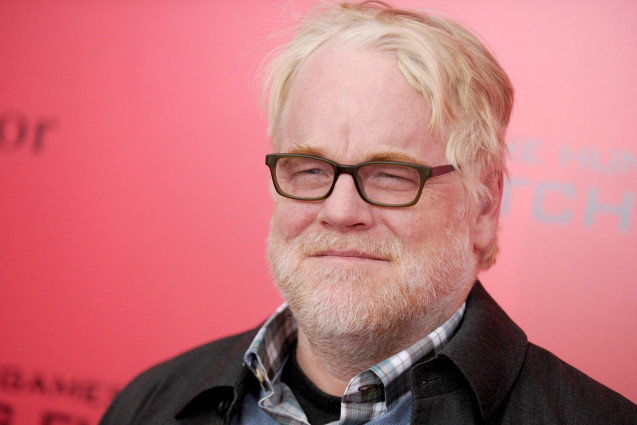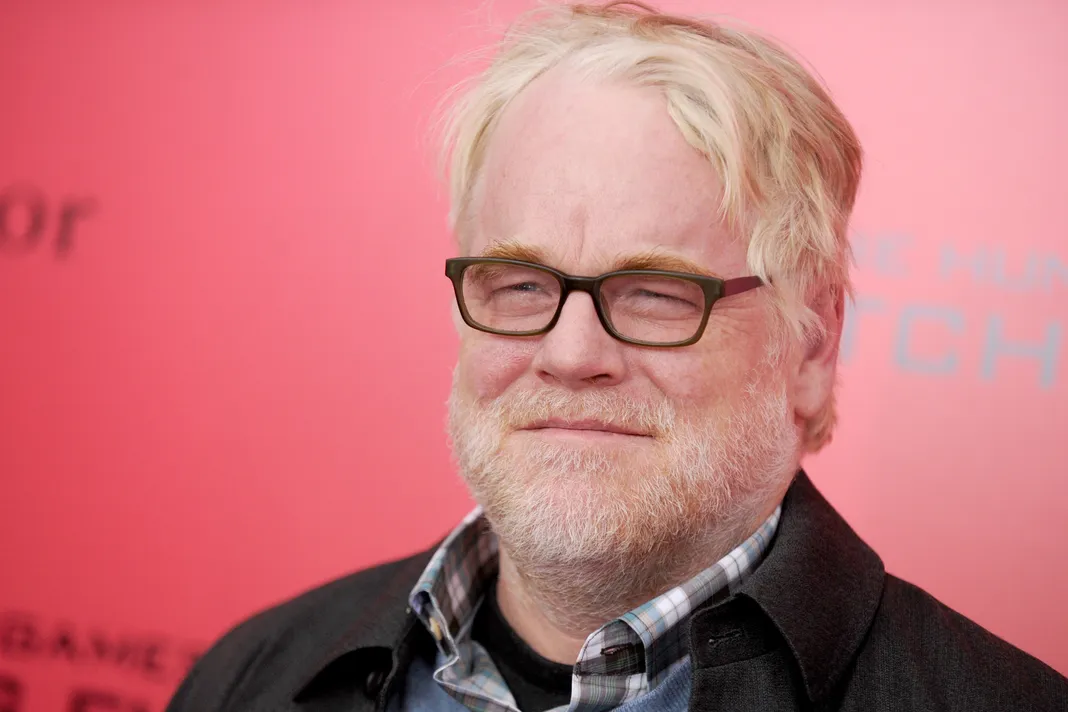 WENN
WENN
PHILIP SEYMOUR HOFFMAN could earn a warm welcome into nearly any discussion about acting. You might kick off conversation about the awards appeal of Daniel Day-Lewis or the maniacal devotion of Joaquin Phoenix, but in mentioning these or any other of today’s foremost acting talents, you’d be compelled to divert attention to the player we lovingly called PSH.
But the topcoat lining Hoffman’s stardom was always a little bit softer that those of his peers. Despite the due praise Hoffman has garnered from the public and the cinematic community alike, he would never be called a movie star. Not an Oscar shoe-in. Why? Because Hoffman was a craft actor — so invested that the very notion of performance was the furthest thing from the minds of anyone watching him found a role. Hoffman wouldn’t just create characters, but entire worlds around him. Upon stages built by creative giants like Charlie Kaufman, the Coen Brothers, and his frequent collaborator Paul Thomas Anderson, Hoffman apprehended every vacant molecule of the stories he was helping to tell, injecting his color and meat therein.
One thing that distinguishes Hoffman from the powerhouses of his stature is the absence of a standout role. To some, Hoffman solidified his genius as Lancaster Dodd, Anderson’s titular Master. Others remain tortured by Hoffman’s turn in the 1995 drama Happiness, wherein he topped the lot of haunting performances by challenging the lengths to which an actor might exemplify human corrosion. But the darker side of storytelling did not keep a stronghold on Hoffman — finding his big screen footing in the action favorite Twister, Hoffman experimented with joy just as often, and to results just as fruitful. Few can forget the stiff shoulders of Jeffrey Lebowski’s pasty, perturbed lackey Brandt, a would-be throwaway character who Hoffman turned into one of the Coen comedy’s funniest elements.
And while nobody is rallying for Along Came Polly’s placement in the cinematic hall of fame, just try and claim you didn’t crack a smile at Hoffman’s introductory pratfall, or his climactic boardroom speech. Hoffman could make any material watchable. But quickly enough, studios and directors learned that he was a force that could turn great material into unprecedented screen work.
As such, there are so many viable answers to the “What’s your favorite Philip Seymour Hoffman performance?” question. Friends and colleagues to whom I have posed the quandary this afternoon have cited everything from Capote to The Savages to Twister to Magnolia to his aforementioned comic bout in The Big Lebowski. For me, it will always be Synecdoche, New York — a movie that dared to tackle the boundless regimens of art, life, time, and sadness in such a vast way, and that through the unique power and humility of Hoffman did so with such articulation.
There are actors who offer tremendous spectacle, who can thrill the masses with a one sheet alone, who live up to the demands of the Academy year after year. Hoffman might not have topped any of these lists, but he pervaded every single one of these conversations — and this versatility is something few actors, even the best of the best, have managed. He has excelled at the dramatic, the chilling, the goofy, and the humane. Every corner of the cinematic world provided him an easel for genius. And now, looking back at his career of adventure flicks, comedies, psychological dramas, and probing stories of the human condition, we realize that there was no type of performance at which Philip Seymour Hoffman was not, in truth, a master.


